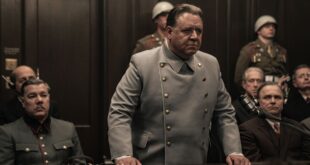
Considered one of the best movies of the 20th century, and one of the most celebrated pieces of war cinema, Saving Private Ryan marked generations by realistically and emotionally portraying one side of World War II that did not focus on the combat itself, but on the human side of the battlefield.
Scenes like Tom Hank’s Captain Miller’s monologue about the effect war had on him and why he’d like to go home or the D-day sequence are landmarks of scriptwriting and justified the Best Original Screenplay Academy Awards nomination the film got – along with 9 others. It is also considered one of the best WW2 movies of all time.
Yet, it was an improvised scene that delivered one of the most memorable and revealing moments concerning the film’s central figure.
Towards the end of the film, after Private James Ryan (Matt Damon) is rescued and relieved from duty due to the loss of his three brothers in the conflict, he shares a personal anecdote with Captain Miller.
Ryan details how he and two of his brothers caught the fourth brother in the barn having sex with an “ugly” woman. Eventually, the woman became aware of their presence and tried to get out of there with her shirt still over her head. Unable to see anything, she ended up slamming against a wall – and when that part of the story comes, Ryan can barely contain himself as he starts busting up laughing.
Behind the scenes, Matt Damon ad-libbed the entire scenario, as described in Peter Bart’s book The Gross, which might explain the look of confusion on Tom Hanks’ face as he listens to it.
The impromptu speech by Matt Damon was characterised as rambling and not particularly humorous or engaging, but the crew felt that this was precisely why it worked.
It served to anchor viewers to Ryan’s character: a simple, unformed youth, destined to be at the heart of this extraordinary mission. Director Steven Spielberg was so taken with it that he chose to keep it in the film.
A significant portion of the film’s audience found the scene distasteful or out of place, given its stark contrast with the polished script elsewhere in the movie. However, it proved to be the perfect way to offer a glimpse into Ryan’s character and personality, separate from the war’s atrocities, and make his presence in the battalion even more of an accurate portrayal of the young soldiers.
Upon its release, Saving Private Ryan garnered widespread critical praise and won Oscars for Best Director, Best Cinematography, Best Film Editing, Best Sound and Best Sound Effects Editing (5 out of 10 nominations).
Its loss of the Best Picture award to Shakespeare in Love is considered one of the most significant snubs in the history of the awards ceremony, and many voters have since stated their regret over the decision. The film also bagged two Golden Globes and two BAFTAs.
 Latest Breaking News Online News Portal
Latest Breaking News Online News Portal






